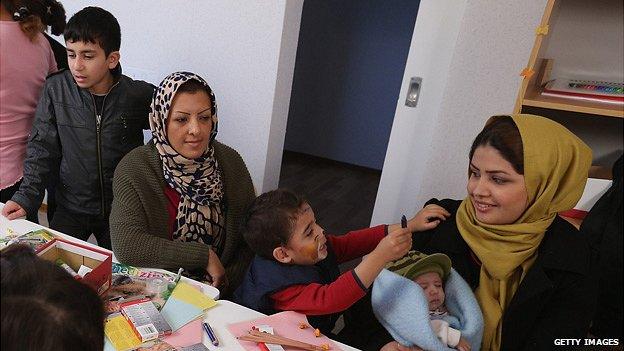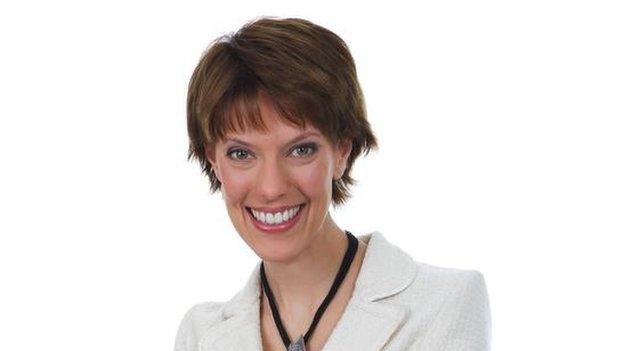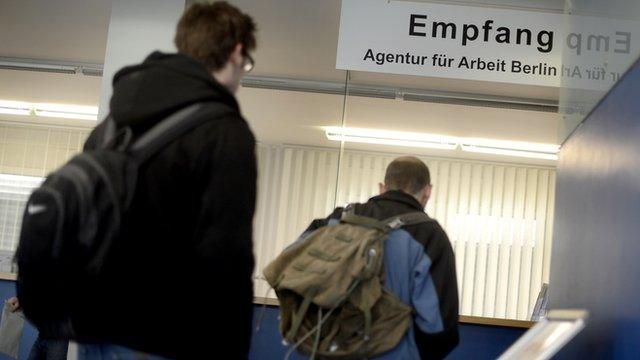'Speak German at home' row as conservatives target migrants
- Published

Refugees in Germany: language rights are a sensitive political issue
Immigrants should speak German not only in public but also in the home, Bavaria's governing conservatives say - provoking a torrent of criticism.
The Christian Social Union (CSU), an ally of German Chancellor Angela Merkel, says it is a matter for debate, and is not yet official policy.
Critics launched a Twitter hashtag - #YallaCSU , external- which became a top trending topic among German Twitter users.
Some express alarm about politics reaching into the home.
The hashtag is an ironic joke at the CSU's expense, as "Yalla" is Arabic for "let's go!"
The CSU draft proposal says "people who want to remain here on a permanent basis should be encouraged to speak German in public and within the family".
CSU general secretary Andreas Scheuer said the proposal was "well prepared and widely backed".
The general secretary of the centre-left Social Democrats (SPD), Yasmin Fahimi, said the CSU had "arrived in Absurdistan.
"It would be hilarious if it weren't so dangerous," she said. The SPD, like the CSU, is in coalition with Ms Merkel's Christian Democrats (CDU) at national level.
Language police?
The SPD's leader in Bavaria, Natascha Kohnen, suggested the proposal would be impossible to enforce, saying "all we need now is the CSU language police, to control all of this".
CDU General Secretary Peter Tauber said "I think it's nothing to do with politics whether I speak Latin, Klingon or Hessian at home".
And the Greens leader in Bavaria, Eike Hallitzky, joked that the CSU's next move might be to tell citizens to have blue-and-white carpets at home - the colours of the Bavarian flag.
The CSU has played a prominent role in pushing immigration higher up the political agenda.
EU data, external shows that Germany was the main European destination for immigrants in 2012 (592,200), followed by the UK (498,000), Italy (350,800) and France (327,400). Worldwide, Germany is also the top destination for asylum seekers.
German official data , externalshows that Turks formed the largest foreign-born group in Germany in 2013 (1.5m), followed by Asians, non-EU Europeans (including Russians and Bosnians), and immigrants from EU members Poland and Italy.
In comments to the BBC, Paul Patel, a British expatriate in Munich, backed the CSU proposal.
"I want my daughter to grow up bilingual and so we use both English and German with her. Why not also speak German at home, whatever your native language is? If we as immigrants see our long-term future in this very supportive country, then the old adage 'practice makes perfect' is appropriate here," he said.
But Steve Coombs, a Briton living in Wiesloch, said that "as far as the language goes, my employer considers me to be German - however, the language I speak within my own four walls is my own concern".
Hassan Saad, another immigrant resident in Germany, said "the idea of speaking German at home is never implementable.
"We all have our freedom of language.... I believe this (proposal) reflects the failure of integration in Germany and the resulting frustration."
- Published3 November 2014

- Published28 November 2014
- Published8 May 2013
